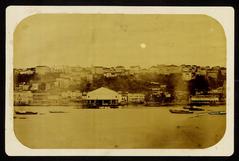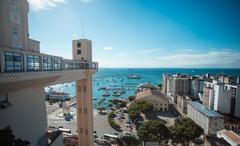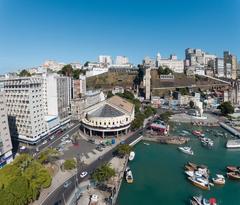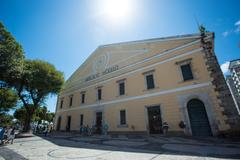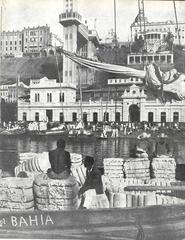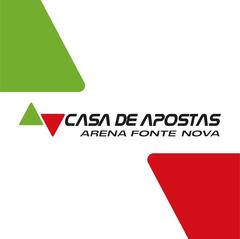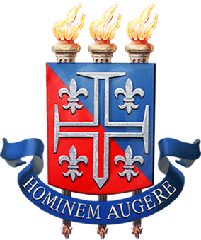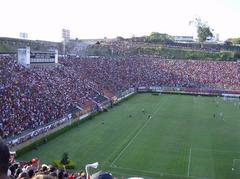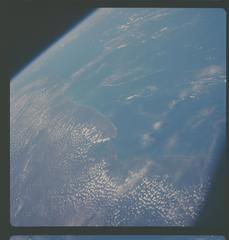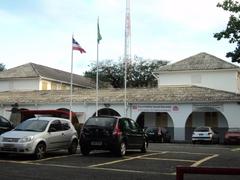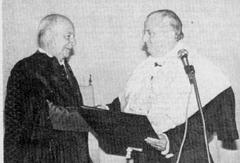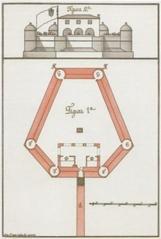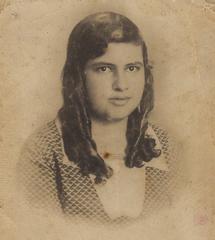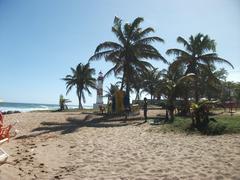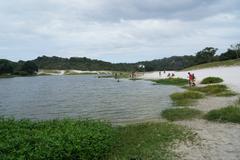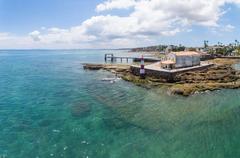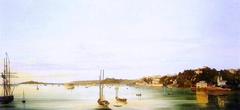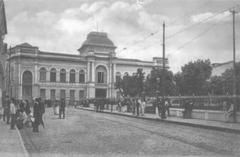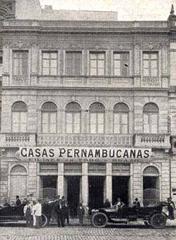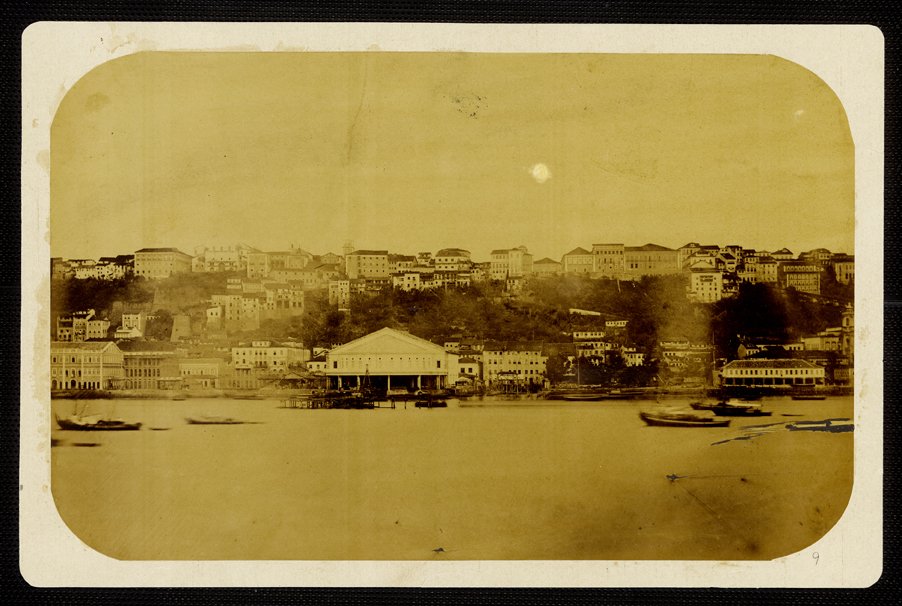
Visiting Mercado Modelo in Salvador: Tips, History, and Visitor Information
Date: 16/07/2024
Introduction
Mercado Modelo, an iconic landmark situated in Salvador, Brazil, serves as a vibrant testament to the city’s rich cultural and historical tapestry. Established in 1912, this market has evolved from a bustling hub of commerce into a cultural institution that attracts over a million visitors annually (salvadorbahia.com). Mercado Modelo’s neoclassical architecture, historical significance, and diverse offerings make it a must-visit destination for anyone interested in exploring the essence of Bahian culture. From traditional crafts and local delicacies to live performances and religious artifacts, the market encapsulates the Afro-Brazilian heritage that defines Salvador. This comprehensive guide aims to provide an in-depth look into Mercado Modelo’s history, cultural impact, and essential visitor information, ensuring a well-rounded experience for all who visit. Whether you’re a history buff, a foodie, or simply a curious traveler, Mercado Modelo promises an immersive journey into the heart of Salvador.
Table of Contents
- Introduction
- Origins and Early Development
- Architectural Significance
- The Fire of 1984
- Reconstruction and Modernization
- Cultural and Economic Impact
- Visitor Information
- Historical Artifacts and Exhibits
- Preservation Efforts
- Role in Festivals and Events
- Future Prospects
- Conclusion
- FAQs
Origins and Early Development
Mercado Modelo, located in Salvador, Brazil, is a historic market that has played a significant role in the city’s cultural and economic life. The market’s origins date back to the early 20th century. Initially, it was established in 1912 as a central hub for the trade of goods, particularly those arriving by sea. The market was strategically positioned near the port, facilitating the easy transfer of goods from ships to the market stalls.
Architectural Significance
The original structure of Mercado Modelo was an architectural marvel of its time. Designed in a neoclassical style, the building featured grand arches and a spacious interior that could accommodate a large number of vendors and customers. The design was not only functional but also aesthetically pleasing, reflecting the architectural trends of the early 1900s. The market quickly became a landmark in Salvador, known for its bustling atmosphere and diverse range of products.
The Fire of 1984
One of the most significant events in the history of Mercado Modelo was the devastating fire that occurred in 1984. The fire caused extensive damage to the original building, leading to its closure for several years. The loss was deeply felt by the local community, as the market had been a central part of daily life in Salvador. Efforts to rebuild and restore the market began almost immediately, highlighting its importance to the city’s cultural and economic fabric.
Reconstruction and Modernization
The reconstruction of Mercado Modelo was completed in 1986. The new structure retained much of the original architectural style but incorporated modern safety features to prevent future disasters. The market was reopened with great fanfare, and it quickly regained its status as a central hub for commerce and tourism in Salvador. The modernization efforts included improved facilities for vendors and customers, making the market more accessible and user-friendly.
Cultural and Economic Impact
Over the years, Mercado Modelo has evolved from a simple marketplace to a cultural icon. It is now one of the most visited tourist attractions in Salvador, drawing visitors from around the world. The market offers a wide range of products, including traditional crafts, souvenirs, and local delicacies. It serves as a showcase for Bahian culture, with many vendors selling items that reflect the region’s rich heritage.
The economic impact of Mercado Modelo cannot be overstated. It provides livelihoods for hundreds of vendors and artisans, many of whom rely on the market as their primary source of income. The market also contributes to the local economy by attracting tourists who spend money on goods and services in the area. According to recent statistics, Mercado Modelo attracts over 1 million visitors annually, generating significant revenue for the local economy (salvadorbahia.com).
Visitor Information
For those planning to visit, Mercado Modelo is open daily from 9:00 AM to 7:00 PM. There is no admission fee, making it an accessible destination for everyone. Guided tours are available and can provide a deeper understanding of the market’s history and cultural significance. Don’t forget to bring your camera, as there are plenty of photographic spots unique to Mercado Modelo.
Historical Artifacts and Exhibits
In addition to its role as a marketplace, Mercado Modelo also houses several historical artifacts and exhibits. These displays provide visitors with insights into the history and culture of Salvador and the wider Bahia region. One notable exhibit is the collection of traditional Bahian costumes, which showcases the intricate designs and vibrant colors that are characteristic of the region’s attire. The market also features a small museum that highlights the history of the building and its significance to the local community.
Preservation Efforts
Preserving the historical and cultural significance of Mercado Modelo has been a priority for local authorities and community organizations. Various initiatives have been undertaken to maintain the market’s architectural integrity and ensure its continued relevance in the modern era. These efforts include regular maintenance and restoration work, as well as programs aimed at promoting the market’s cultural heritage. The market is also protected under local heritage laws, which help to safeguard its future (iphan.gov.br).
Role in Festivals and Events
Mercado Modelo plays a central role in many of Salvador’s cultural festivals and events. During the annual Carnival, the market becomes a focal point for celebrations, with vendors and performers showcasing the best of Bahian culture. The market also hosts various cultural events throughout the year, including music performances, art exhibitions, and food festivals. These events help to reinforce the market’s status as a cultural hub and attract even more visitors to the area.
Future Prospects
Looking ahead, Mercado Modelo is poised to continue its legacy as a vital part of Salvador’s cultural and economic landscape. Plans are in place to further enhance the market’s facilities and expand its range of offerings. There is also a growing emphasis on sustainable practices, with initiatives aimed at reducing waste and promoting environmentally friendly products. As Salvador continues to grow and evolve, Mercado Modelo will undoubtedly remain a cherished institution, beloved by locals and visitors alike.
Conclusion
In summary, Mercado Modelo stands as a cornerstone of Salvador’s cultural and economic landscape, offering a unique blend of history, tradition, and modernity. From its early days as a customs warehouse to its current status as a cultural icon, the market has continually adapted while preserving its historical essence. The market not only provides a livelihood for hundreds of vendors and artisans but also serves as a focal point for Bahian culture, drawing tourists from around the globe. Visitors can explore a wide range of products, savor traditional Bahian cuisine, and immerse themselves in vibrant cultural performances and events. Preservation efforts and modernization plans ensure that Mercado Modelo remains relevant and cherished for future generations. For those planning a visit, the market is open daily, offering free admission and a plethora of experiences that cater to diverse interests. As Salvador continues to grow and evolve, Mercado Modelo will undoubtedly remain a beloved institution, celebrating the rich cultural heritage of Bahia (iphan.gov.br).
FAQs
Q: What are the visiting hours for Mercado Modelo? A: Mercado Modelo is open daily from 9:00 AM to 7:00 PM.
Q: Is there an admission fee to enter Mercado Modelo? A: No, there is no admission fee.
Q: Are guided tours available? A: Yes, guided tours are available and can provide a deeper understanding of the market’s history and cultural significance.
Q: What types of products can I find at Mercado Modelo? A: The market offers a wide range of products, including traditional crafts, souvenirs, and local delicacies.
Q: Are there any special events held at Mercado Modelo? A: Yes, the market hosts various cultural events throughout the year, including music performances, art exhibitions, and food festivals.
References
- Exploring the Rich History of Mercado Modelo - Salvador’s Iconic Market, 2024, Author (salvadorbahia.com)
- Exploring Mercado Modelo in Salvador - History, Cultural Significance, and Visitor Tips, 2024, Author (bahia.com.br)
- Mercado Modelo, Salvador - Visiting Hours, Tickets, and Top Attractions, 2024, Author (iphan.gov.br)
